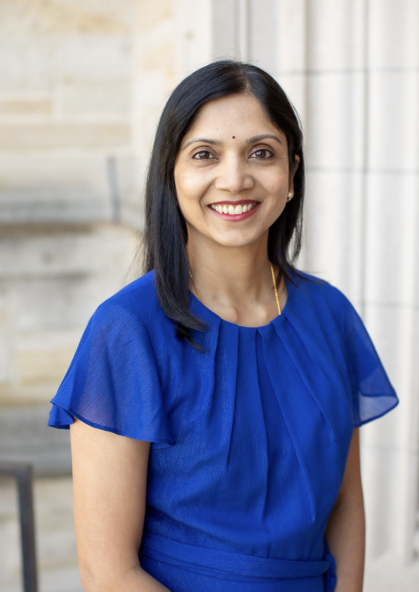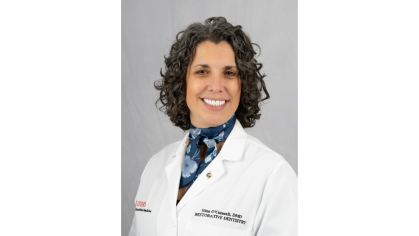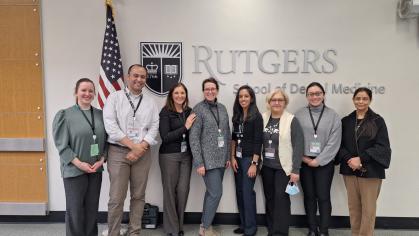A Passion for Teaching and Healing
Sowmya Ananthan’s journey into the world of dentistry and academia began with a simple rite of passage—getting braces as a teenager. Watching her orthodontist, who was also a teacher, sparked a realization that a dentist can be practicing and teaching.

Today, that’s precisely what Ananthan does. She is an Associate Professor of Diagnostic Sciences at Rutgers School of Dental Medicine (RSDM), all while running a private practice specializing in orofacial pain and dental sleep medicine. She is board-certified in both specialties and is a board examiner for the American Board of Orofacial Pain.
Her path to this niche field was anything but conventional. After earning her dental degree in India, she moved to the US and stumbled upon a fellowship in orofacial pain at Rutgers. “I knew nothing about it,” she recalled. American Dental Association recognized orofacial pain as a specialty in 2020. “I said let me try it. It was a year-long program. If I like it, it’s fine. If I don’t, at least I would have tried it.”
That leap of faith turned into a calling. “I fell in love with it,” Ananthan said. She enjoyed being able to see a diverse group of patients with varying medical issues, ranging from temporomandibular disorders to complex problems like dystonia. She decided to pursue a master’s degree in the same field and later completed a two-year DMD program at RSDM designed for internationally educated dentists to meet American licensure requirements.
Following graduation, she began practicing privately and also teaching at RSDM. She credits her mentor, Eli Eliav, for recognizing her potential as an educator. “He believed I would make a good teacher,” she said. “I’ve always liked mentoring people and helping them figure things out. Teaching [also] helps me stay sharp. You have to be up to date on the new things that are coming up so you can be relevant.”
To grow her skills as a pain specialist, she branched out to sleep medicine, too. “Chronic pain and sleep are very intimately intertwined,” she explained. “With orofacial pain, if you don’t recognize the importance of sleep on the well-being of the patients, you’re doing a great disservice.” At Rutgers, she and her colleagues developed a referral network with the medical school to ensure patients receive comprehensive care for conditions like obstructive sleep apnea.
As a clinician, she has been helping patients find relief following decades of pain and dozens of doctor visits. She will not forget a patient who had seen 21 different healthcare professionals until finding her for a diagnosis of a myofascial pain syndrome. “It was as simple as that, but because there are not many of us, patients suffer, go from here and there, trying to get an answer,” she said. “When they finally hear what’s wrong, they break down in tears—not because they’re happy to have a disease, but because they finally know what it is.”



